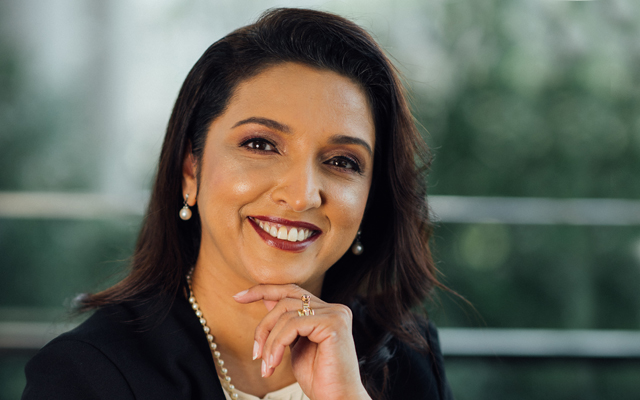Mala Dorasamy, the CEO of Malaysia International Trade & Exhibition Centre (MITEC), has been with the company since 2017, when she was first its director of marketing and sales, before assuming the helm in 2022. She talks about the changes in customer demand post-lockdown, and how the venue is adapting to these new requirements.

What are some of the experiences you can share from the pandemic, having experienced it both as acting CEO and later as its CEO?
The business events industry came to a standstill due to the pandemic, and MITEC was not an exception. This challenging period taught us valuable lessons in resilience, prompting us to adapt our business practices, be agile and maintain our unwavering commitment to making a positive impact in people’s lives.
When the government put a temporary halt on business events activities in the country, the venue was turned into a national, mega vaccination centre. My team and I quickly adapted to the situation and took on new responsibilities as needed and worked closely with various stakeholders, including healthcare providers, government agencies and volunteers to ensure a seamless workflow every day for several months.
We established effective communication channels between the centre and all parties involved, coordinated schedules and shared resources for the overall smooth functioning of the venue as a national vaccination centre.
What is the largest change you’ve noticed in the event planning process post-lockdown?
Post-lockdown, event organisers have placed sustainability as a high priority, and are incorporating eco-friendly procedures into their workflows. These include actions such as lowering energy use, utilising renewable resources, composting, recycling waste, as well as promoting eco-friendly transportation options for their events.
Event organisers are also increasingly looking at ways to be more inclusive and incorporating aspects such as diversity and inclusion, accessibility for the disabled, and providing support for local communities when planning their events.
How have the requirements of event planners changed post-lockdown and what new technologies have MITEC invested to cater to these new requirements?
The ubiquity of smartphones now allows event planners to create events that feel personalised for each attendee, while at the same time it collects unprecedented amounts of real-time data about those attendees. The benefits can be seen at every level, from easier check-ins to the facilitation of networking and content sharing between delegates and clients.
On our part, we have introduced new digital innovations which is aimed at meeting the changing demands of our customers, while increasing efficiency, and having quality interactions with them. Among these innovations are the Ungerboeck Exhibitor portal to ensure a seamless online exhibitor order; and the MITEC app for clients to access our latest updates, important events, as well as order meals from our café. We have also introduced digital signage as our customers prefer these to printed buntings.
What new initiatives and investments are MITEC looking into for the near future?
We will be introducing additional digital innovations to fulfil our customers’ evolving needs and continue improving their efficiency and quality.
Recently, we appointed Qualtrics as our online survey platform vendor to measure our stakeholders’ satisfaction in an effort to improvise customer experience. Establishing an approach for measuring customer satisfaction enables us to attain knowledge about our customers and their behaviours which will then help build brand loyalty.
Overall, what more should Malaysia do to attract more international trade exhibitions and conferences?
The business events industry needs to work closely with the Malaysia Convention and Exhibition Bureau when organising and managing Malaysia’s participation in international trade fairs and roadshows.
The federal government should also offer financial incentives, such as tax breaks, subsidies or grants to event organisers and exhibitors to encourage them to choose Malaysia as a host country for holding their events. The government should also look into simplifying visa procedures for international event attendees and exhibitors to enter Malaysia and attend business events.
I also believe that fostering a strong service culture is imperative to attract more international trade exhibitions and conferences. Hospitality in this context revolves around providing exceptional experiences to guests by prioritising their needs, actively listening to them, being friendly, and genuinely interested in assisting them.





















